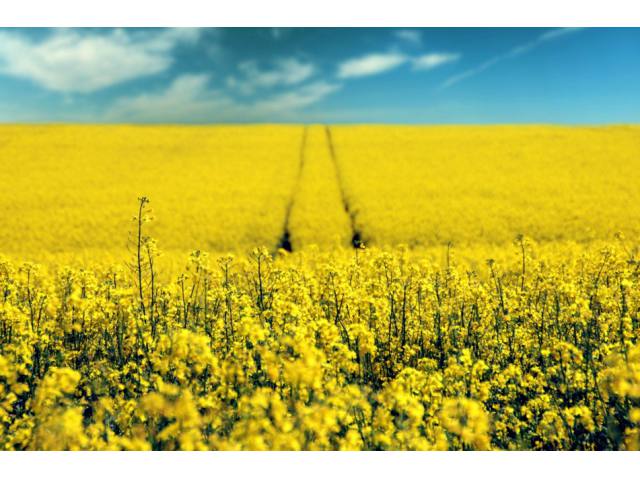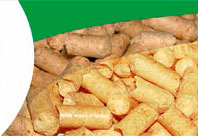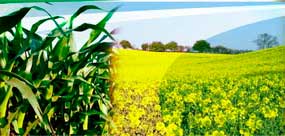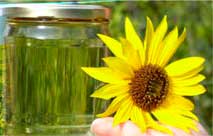Grain and rapeseed sowings in the EU: the impact of mild weather conditions

The weather during this autumn remained quite mild all over the European Union. Relatively high temperatures as well as an appropriate amount of rainfalls, made it possible to sow fields with a necessary quantity of winter crops, such as wheat, barley, rye and rapeseed in different European countries.
The harvest of wheat sowings increased
First of all, the harvest of wheat, which is the main grain crop in the European Union, was boosted significantly due to favorable weather conditions during three last months. In this case, Germany, France and the United Kingdom, which are the European largest producers of wheat, have increased their areas sown with this cereal.
For instance, the farm ministry of France said that winter wheat area has been up by 1.5 per cent in this country. In other words, additional 5.22 million hectares were sown with this grain crop. In these circumstances, the harvest of wheat was the biggest-ever in the current year. This figure equated 41 million tonnes. What is more, the quality of this harvest was estimated as excellent. According to the farm office FranceAgriMer, 98 per cent of French wheat was rated excellent.
Beyond that, French barley areas has also been up this year. Approximately 97 per cent of this crop yields were rated excellent as well as winter wheat. In this case, France has become the biggest producer of grain among in the European Union.
However, in Poland and Baltic countries weather conditions were quite different. During several weeks, a continued drought along with unusually cold winds was raging in these countries. Nevertheless, the weather has changed and winter wheat sowings were not seriously damaged. In addition, a number of countries from Austria to Romania was also marked by dry weather. However, such weather conditions were favorable for sowing in these countries, as they had been disrupted by heavy rains in summer.
The decline in the European production of rapeseed
At the same time, the drop in rapeseed area was registered among the European countries, though rapeseed is the most popular oilseed in this region. For instance, when it comes to France, the decline in rapeseed production was registered in the northwest – French largest producing region, according to the oilseeds technical centre Terres Inovia.
Moreover, the decline in rapeseed area is expected in both Poland and the United Kingdom. In this context, AHDB analyst Watts supposes that this decline will have reached 10 per cent in the UK. As for Poland, the future drop in this country is estimated at 6-10 per cent or 800,000-825,000 hectares.
Factors, which made a negative impact on rapeseed sowings in the EU
The decline in rapeseed area in the European Union is determined by several reasons. The first one is a low price for this oilseed. Another one is that the sowings of rapeseed will be seriously damaged on condition of a brutal cold snap. This threat can be by no means excluded. It means that the production of rapeseed is to become un-profitable in this case.
However, there is one more threat that should be taken into account. This is about diseases. The point is that the temperature, which was above normal during last three months, and wet weather are the best contributors to the development of a number of diseases.
First of all, such weather creates favorable conditions for the propagation of aphids. In this case, researcher Mark Taylor at Rothamsted Research underlines that vigilance is required in order to save rapeseed sowings.
He also adds that though the weather was wet and windy during several days in November, it was not enough to restrict aphid flight completely. The main reason is that a great amount of aphids remained on the ground, where it had an opportunity to reproduce in appropriate conditions and migrate between plants.
Beyond that, aphid migration is not the only one threat in this case. There are some other kinds of pests, which are to damage rapeseed plantings. This is about slugs or flea beetles. Therefore, specially designed sprays should be applied in order to combat pests.
In summary, the mild weather in a number of European countries contributed significantly to the increase of winter wheat area. Therefore, the harvest of grain crops has also been up in this year. At the same time, the drop in rapeseed area was marked in the European Union. It was caused by several factors, such as low prices for rapeseed, supposed unprofitability of this oilseed production as well as the spreading of diseases caused by pests.
Grain and rapeseed sowings in the EU: the impact of mild weather conditions

Any copying and distributing the material of Ukrainian Biofuel Portal
without active hyperlink is stricly prohibited !
Link to this news:
Grain and rapeseed sowings in the EU: the impact of mild weather conditions
Copy & Paste This Code to your website:
Views: 1834 Added: 07-12-2015






